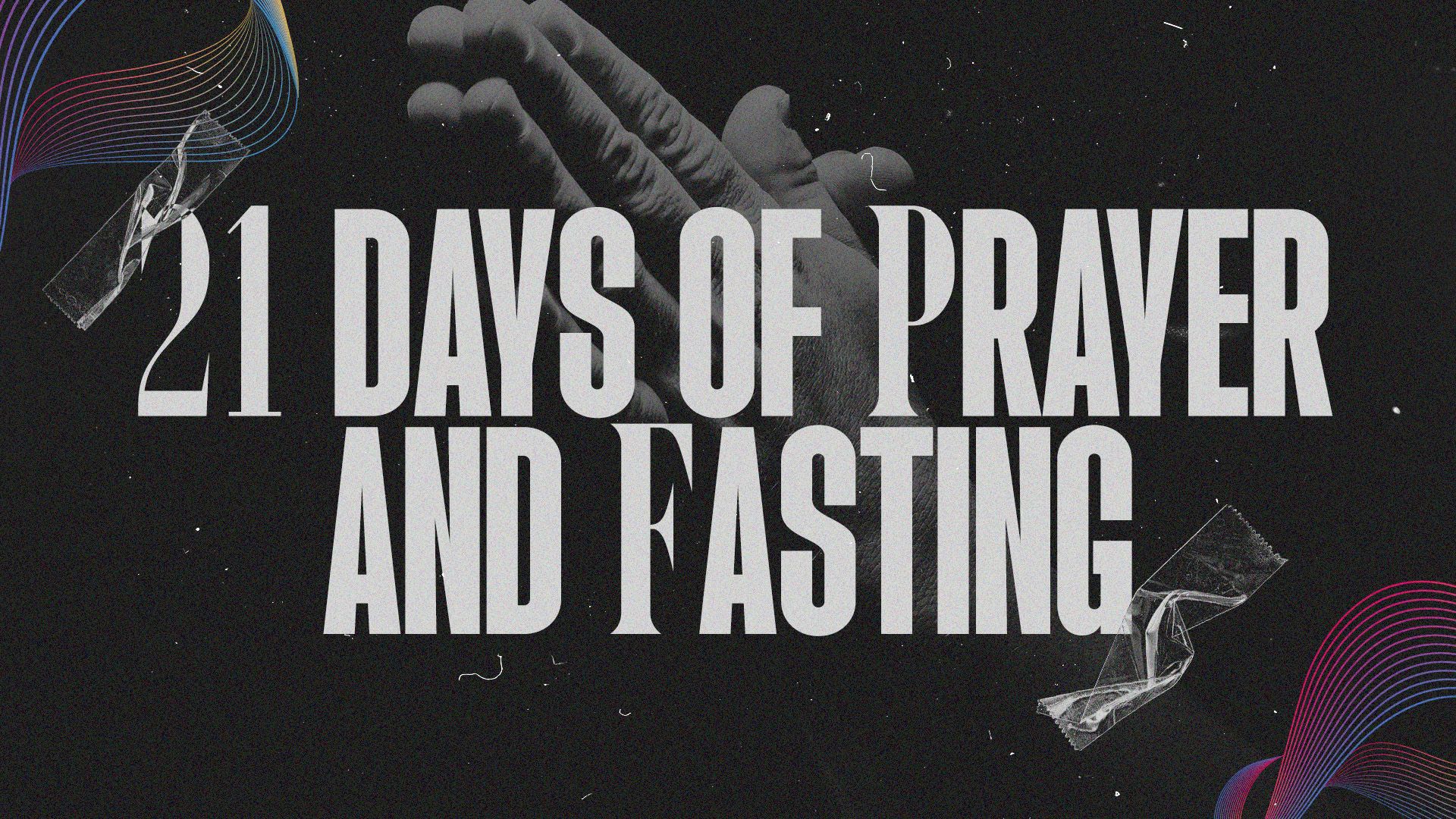
January 8th-28th 2024
Start the New Year with a New Commitment to God
Join CenterPoint Church this January for 21 days of prayer and fasting. We are going to begin 2024 by sharpening our focus on God and asking him to do a new work in our lives. We invite you to participate in this time with us. There is power when a church agrees to practice spiritual disciplines such as fasting together. We are united in our spirit and hunger for God.
Frequently Asked Questions
Fasting is an idea that comes from the Bible. We see God’s people fasting at different times in the Bible (Exodus 34:28). Jesus himself fasted for 40 days (Matthew 4:2-4). And Jesus expects that his followers will fast from time to time (Matthew 6:17). Fasting is the voluntary denial of a particular activity over a period of time for an intentional, spiritual purpose. Fasting often includes food, but not always.
The goal of fasting is clear: it is meant to help us draw near to God. Biblical fasting always has to do with eliminating distractions for a spiritual purpose. A fast requires us to refrain from an activity. This activity isn’t something sinful, we should always be eliminating sin from our lives! Rather, it’s stopping something that God permits (i.e. food, media, leisure) for a period of time to gain greater spiritual growth.
Fasting can be a way to experience renewal and allow God to draw us in deeper with him. As we are more actively listening to God, we can gain wisdom and insight from him. Fasting also enables us to celebrate the goodness and mercy of God. Fasting prepares our hearts for all the good things God desires to bring into our lives.
Jesus teaches us that we must have the right attitude when we fast (Matt. 6:16-18). If during our fast, we’re more excited about losing weight or gaining extra time in our day than connecting with God, then something is wrong with our approach. It is important to keep our focus on getting closer to God through our fast.
Remember, your personal fast should present a level of challenge, but it is very important to know your body, your options, and, most importantly, to seek God in prayer and follow what the Holy Spirit leads you to do.
We would probably all admit that we need a strong connection with God, but sometimes that connection experiences interference from the noise in our lives or the busyness of our schedules. Other times, we have a poor connection because we’ve simply grown complacent about our faith. And yet there are times when we’re in a difficult situation that requires an even greater connection with God. Whatever the case, fasting is a spiritual discipline that can amplify our connection with God.
Fasting is a very effective way to turn our minds to God and pray. In fact, few things can remind us of God throughout the day like fasting. For example, when you get a headache because you are fasting from coffee, a twitch because you gave up Facebook, or a growling stomach because you are abstaining from food, these experiences should drive you back to God in prayer regarding your spiritual purpose.
God doesn’t want you to endanger your health by abstaining from food. If you are fasting from food, make sure you drink a lot of water. Staying hydrated is crucial. If you have a medical condition that prevents you from fasting from food or if you’ve battled an eating disorder in the past, do not fast from food. If you’re not sure if you should be fasting from food, speak with your doctor first. There’s nothing wrong with fasting from something other than food and God wants us to be wise in our fasting. If you cannot fast from food, fast from something that normally takes up a lot of your time and attention.
Jesus warns us not to broadcast our fasting to others. It’s ok to let others know you are fasting, but you shouldn’t tell them in order to impress them. If you are trying to impress people through your fasting, then you’ve missed the point. Fasting is only valuable if it draws you closer to God.
- Complete Fast – In this type of fast, you drink only liquids.
- Selective Fast – This type of fast involves removing certain foods from your diet. One example is the Daniel Fast (Daniel 1:11-16), during which you remove meat, sweets, and bread from your diet, and primarily eat fruits and vegetables and drink water and juice.
- Partial Fast – This fast involves abstaining from eating any type of food for a specific part of the day. You could decide not to eat from sunup to sundown or a period of time, like 7:00am to 5:00pm.
- Media Fast – This fast is a great option if you do not have much experience fasting from food, have health issues that prevent you from fasting food, or if you wish to refocus certain areas of your life that are out of balance. For example, you might choose to stop using social media or watching television for the duration of the fast and then carefully bring that element back into your life in healthy doses at the conclusion of the fast.
- Create your own – Spend time praying about the things that take up your time and attention… time and attention you could devote to your walk with God. Decide to fast from those activities or items during these 21 days.
Create Your Plan
We don’t know exactly what God will do in each of us during this fast. But we know that if we spend 21 days seeking God, he will move powerfully in us. Fasting should always be accompanied with regular reading of the Bible. Click below if you need suggestions for a devotional or reading plan: